Qiaoning Zhang
From the Head or the Heart? An Experimental Design on the Impact of Explanation on Cognitive and Affective Trust
Oct 07, 2021
Abstract:Automated vehicles (AVs) are social robots that can potentially benefit our society. According to the existing literature, AV explanations can promote passengers' trust by reducing the uncertainty associated with the AV's reasoning and actions. However, the literature on AV explanations and trust has failed to consider how the type of trust - cognitive versus affective - might alter this relationship. Yet, the existing literature has shown that the implications associated with trust vary widely depending on whether it is cognitive or affective. To address this shortcoming and better understand the impacts of explanations on trust in AVs, we designed a study to investigate the effectiveness of explanations on both cognitive and affective trust. We expect these results to be of great significance in designing AV explanations to promote AV trust.
A Review of Personality in Human Robot Interactions
Feb 05, 2020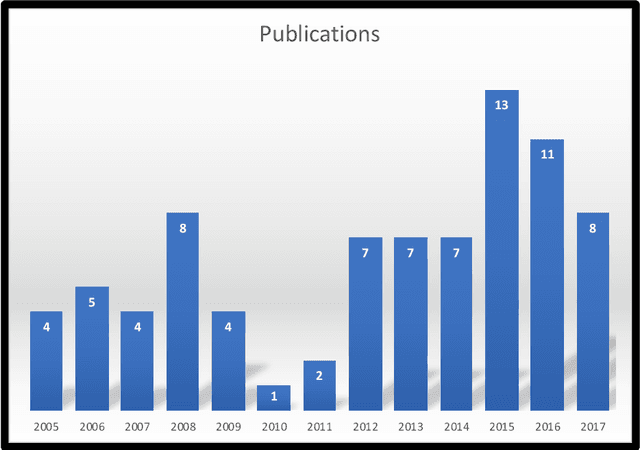
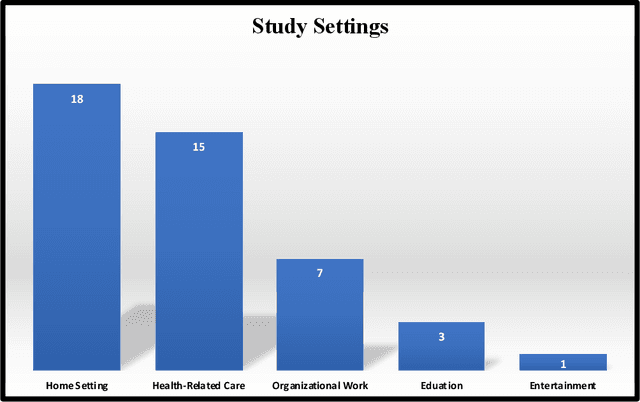
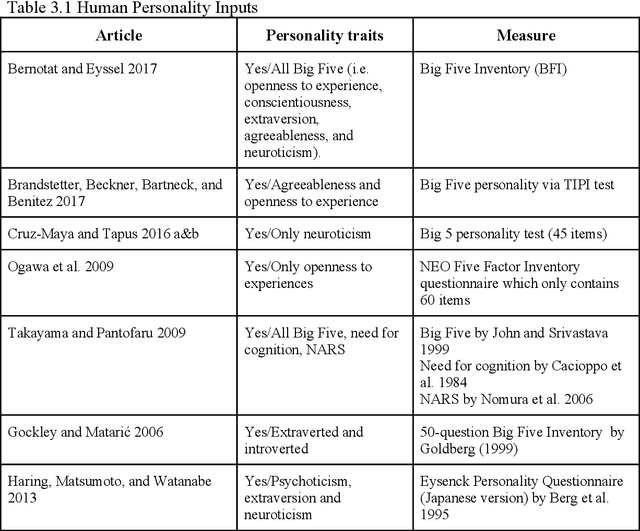
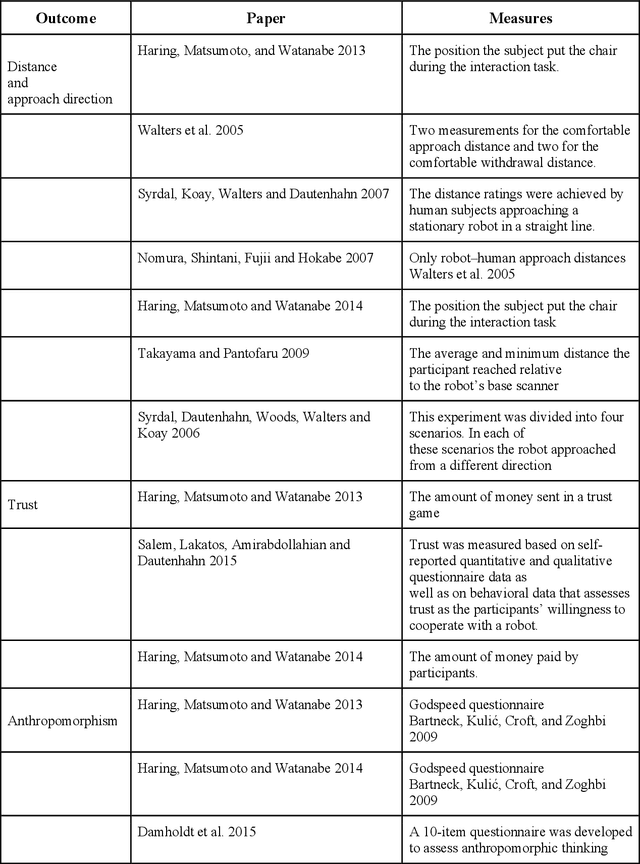
Abstract:Personality has been identified as a vital factor in understanding the quality of human robot interactions. Despite this the research in this area remains fragmented and lacks a coherent framework. This makes it difficult to understand what we know and identify what we do not. As a result our knowledge of personality in human robot interactions has not kept pace with the deployment of robots in organizations or in our broader society. To address this shortcoming, this paper reviews 83 articles and 84 separate studies to assess the current state of human robot personality research. This review: (1) highlights major thematic research areas, (2) identifies gaps in the literature, (3) derives and presents major conclusions from the literature and (4) offers guidance for future research.
An Automated Vehicle like Me? The Impact of Personality Similarities and Differences between Humans and AVs
Sep 11, 2019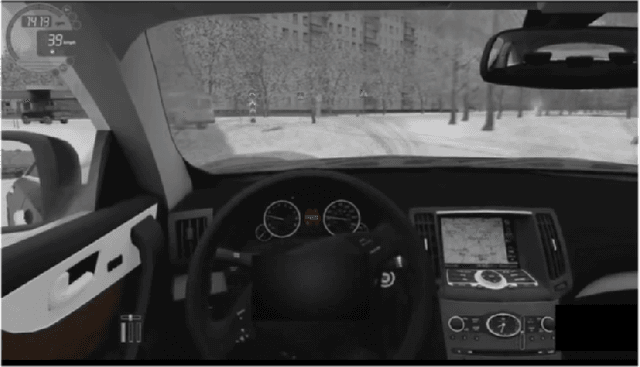
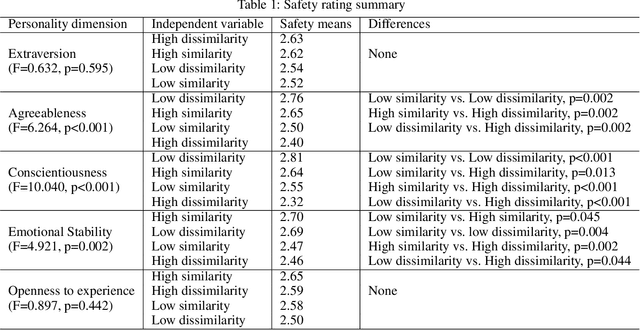
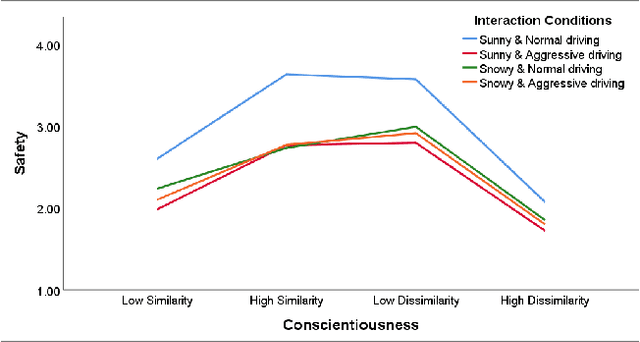
Abstract:To better understand the impacts of similarities and dissimilarities in human and AV personalities we conducted an experimental study with 443 individuals. Generally, similarities in human and AV personalities led to a higher perception of AV safety only when both were high in specific personality traits. Dissimilarities in human and AV personalities also yielded a higher perception of AV safety, but only when the AV was higher than the human in a particular personality trait.
Look Who's Talking Now: Implications of AV's Explanations on Driver's Trust, AV Preference, Anxiety and Mental Workload
May 21, 2019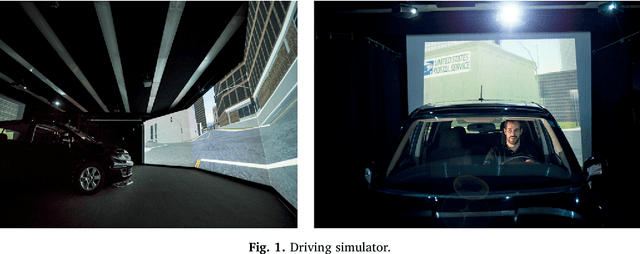

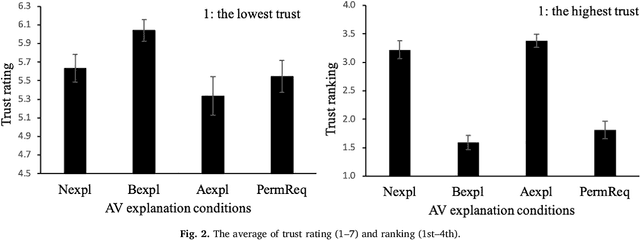

Abstract:Explanations given by automation are often used to promote automation adoption. However, it remains unclear whether explanations promote acceptance of automated vehicles (AVs). In this study, we conducted a within-subject experiment in a driving simulator with 32 participants, using four different conditions. The four conditions included: (1) no explanation, (2) explanation given before or (3) after the AV acted and (4) the option for the driver to approve or disapprove the AV's action after hearing the explanation. We examined four AV outcomes: trust, preference for AV, anxiety and mental workload. Results suggest that explanations provided before an AV acted were associated with higher trust in and preference for the AV, but there was no difference in anxiety and workload. These results have important implications for the adoption of AVs.
 Add to Chrome
Add to Chrome Add to Firefox
Add to Firefox Add to Edge
Add to Edge